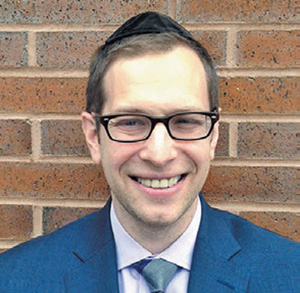
It was that time of year again, and the town of Shelbyville was set to host its annual awards ceremony. This annual event, known as the Shelbies, paid tribute to the most influential members of the community. Included were such awards as Most Improved Lawn, Safest Driver, Friendliest Cashier, and of course, the Kindness Award. The favorites to win the kindness award were Wilma and Wilbur Worthingham, who had won the award for the past six years. Wilma and Wilbur had 20 children, 13 of them adopted. They ran an animal shelter, soup kitchen, medical clinic and jump rope gemach. The Worthinghams gave large amounts of charity every year, and could always be counted on for favors, large and small.
The custom at the Shelbies was to have recipients of the candidates’ kindness speak on behalf of their benefactors. Whoever wanted to could accompany the candidates onstage although there was a limit of three speakers per candidate. These speeches would take place at the start of the ceremony, and the Shelbies would conclude with the presentation of the Kindness Award. This year, the Kindness Committee selected four finalists, and as each ascended the stage, it became clear that the Worthinghams would win once again. The three other candidates were accompanied by one person each, while Wilma and Wilbur had an entire football team’s worth of children, adults and even a few animals.
The Worthinghams were introduced first, and three separate individuals spoke on their behalf. The three speeches took a total of 45 minutes, which wasn’t even enough time to list all the kindnesses Wilma and Wilbur had bestowed throughout the year. Then came the time for the other candidates.
First, an older-looking woman stepped to the microphone.
“I’d like to nominate Ernie Everest for the kindness award. He brought me a tissue.”
Wilma and Wilbur exchanged puzzled looks as a tall man stepped forward.
“Molly Marks is deserving of this award. She gave me a ride home.”
Wilma and Wilbur now looked extremely confused. Was this Color War breakout or something?
Finally, an old man took his turn to speak. “My vote is for Carlos Carter. He lent me a pen.”
The audience burst into applause.
The mayor then took the stage. “Thank you for your nominations. We will discuss the candidates and announce our winner in a few hours.” The Worthinghams left the room expecting a seventh straight victory.
If you are reading this, you are probably thinking, “obviously the Worthinghams won’t win. That’s how these stories work.” Well, if you had that thought, you were 100% correct.Obviously, Wilma and Wilbur did not win; they actually finished in fourth place, while Molly Marks took home the award.
Wilma and Wilbur needed to find out what happened, so they simply asked each person who spoke on behalf of the candidates what the real story was. None of the candidates had a particularly interesting story to justify their reasoning; they actually had no stories at all.
“I was in the library, and I sneezed, and Ernie, whom I had never met before, walked over and handed me a tissue.”
“I was walking home, and it was cold, so Molly pulled over and gave me a lift home. That’s all.”
“I was filling out a check at the bank and my pen ran out of ink. Carlos noticed and lent me his pen to finish.”
Now, Wilma and Wilbur were completely confused. What was going on here? Was there a lesson to learn here that they were missing? Actually, that was exactly it. That Shabbat, Wilma and Wilbur sat in shul and heard the Rabbi discuss parshat Chayei Sara. He asked what it was about Rivka’s chesed that showed she was worthy of marrying Yitzchak and being one of the imahot of the Jewish people. The Rabbi answered that when Eliezer asked for water, Rivka said “I will draw water for you and also for your camels.” Rivka went beyond what she was asked and realized that Eliezer’s camels would likely need water as well. In other words, she gave without being asked.
The Worthinghams immediately realized what they missed. This year, all the kindness they did was either a continuation of previous kindness or a response to a request. The other candidates, as insignificant as their acts seemed, practiced a different type of chesed by figuring out what others need without being asked. These true acts of chesed can be done every day and by anyone. Wilma and Wilbur spent the following year traveling the world asking people to be on the lookout for opportunities to carry out “spontaneous kindnesses.” The Wilminghams also request that each person reading this think of situations in which we can help those who would appreciate a small act of kindness, even without a request.
By Yair Daar













